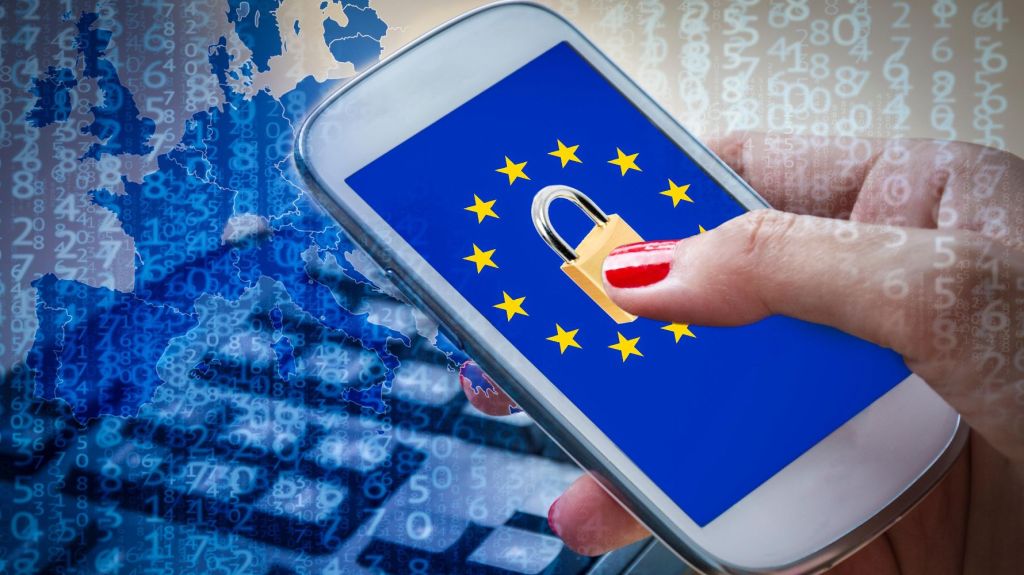Introducing the latest myCWT product and service enhancements
Building on our digital, omnichannel myCWT platform, our new products and services will simplify travel management for you and your employees – anytime, anywhere, anyhow.
Note: Featured services may not be available in your country at this time. Please reach out to your CWT representative for more details.
Hear from Chief Product Officer, Erica Antony as she shares the key product highlights of 2024, along with the key areas driving innovation.
-

2040: Baseline, Boom or Bust
As we enter an era of rapid transformation and unprecedented challenges, it is essential for travel managers, meeting & event planners, and corporate decision-makers to look ahead and frame our current strategic thinking with a clear vision of the future. Business travel and meetings and events (M&E) are poised for significant change over the next decade and a half, driven by a complex interplay of sustainability goals, technological advancements, evolving work models, and geopolitical dynamics.
In this paper to mark the 10th anniversary of our Global Business Travel Forecast, we explore, for the first time, a long-term vision of the future and potential trajectories through three distinct scenarios, each offering insights into how these forces should affect policy-making, budgeting and priorities. By examining these scenarios, we can better understand the diverse possibilities that lie ahead and the strategic imperatives required to thrive in each potential future.
Based on trajectory data analysis and interviews with industry leaders, behaviorists and climate tech founders, this forward-looking approach enables us to anticipate changes, strengthen our strategies, and make informed decisions that align long-term objectives. It is through this lens of foresight and adaptability that we can build resilience, seize opportunities, and navigate the complexities of the future.
We invite you to reflect on the insights presented, and consider how your organization can prepare for the opportunities and challenges that lie ahead. Together we can ensure that travel and meetings remain catalysts for growth, scalability and sustainable practices.
- Scenario development is both an art and a science
- Megatrends Shaping the Future of Business Travel, Meetings and Events
- Sustainability goals the new crux of corporate policy
- Technology Revolutionizes Travel Management
- Modern work models spark new travel patterns
- Changing demographics open doors to new opportunities
- Three Scenarios: Base case, boom and bust
- Future-proofing strategies

-

CWT GBTA Global business travel forecast 2025
When it comes to pricing, global business travel has finally reached an enduring, higher baseline. Prices will continue to rise in 2025, but only moderately, so expect a period of normalized growth.
However, this pricing environment, one of marginal gains and price regularity, is fragile. Global leisure travel has now realized a lot of its pent-up demand, while corporate travel has been resurgent, with 2024 edging at preCovid levels.
There are many factors at play, whether its volatile oil prices, labor costs and constraints, inflationary pressures, and geopolitical factors. As this elevated baseline edges upwards, albeit marginally, travel budgets will come under increased scrutiny, especially as travel patterns and attitudes change.
It’s why business travel can’t be viewed in a silo, and the true value to an organization must be fully realized. This forecast can help with those calculations.

-

Capitalize on emerging technologies in corporate travel
Technological advancements are accelerating at an unprecedented pace. How will emerging innovations like Generative AI, blockchain, and self-sovereign identity (SSI) transform corporate travel?
BTN and CWT probed global CEOs, travel managers, industry consultants and tech experts on the promises, questions, and expectations these innovations raise and how they are set to reshape traveler experience, cost control and service delivery in corporate travel and events.
Download and discover
- The technologies that will have the greatest impact on corporate travel in the next 2-5 years
- How these emerging technologies are poised to control costs, enhance service and security, and boost efficiency
- The critical challenges, opportunities, risks and roadblocks each innovation raises
- What travel managers, buyers and experts anticipate from these innovations

-

Today’s D-Day – GDPR myth-busters (4/4)
In the final post of our series aimed at debunking myths around the General Data Protection Regulation (GDPR) that comes into effect today, I invite you to exhale.
Myth #4: You must be 100% compliant by 25 May
Most deadlines are like train announcements: Useful information for the periphery of your mind. Others are like ticking time-bombs in the collective consciousness: Cinderella at midnight, Y2K, and end-of-world prophecies.
Rumours about the GDPR deadline have certainly placed it in the latter category. But while achieving 100% compliance by 25 May was a goal for some of us, the preparations for it have unveiled something else, more profound.
Unlike a box-ticking exercise or one-time stress test, GDPR compliance is, in reality, a journey, not a destination. This makes it all the more significant. Although you should have a robust data privacy program in place by now, 25 May signals the start of transformative corporate behaviors around data protection and data security. It’s not a day in one’s life. It announces corporate change on a large geographic scale.
GDPR’s real value resides in ever-evolving and adaptive ways of ensuring good data protection practices, on-going compliance and continuous improvement.
So don’t think it stops here. 25 May is the day to look ahead, to continue building a framework, and to promote a culture of privacy within your organisation.
Privacy matters; today, tomorrow and for the foreseeable future.
Read also:
The Age of Consent? – GDPR myth-busters (1/4)
-

Melbourne airfares soar in Q1 2018, hotel occupancy/rates also rise: CWT/CAPA Report
CWT Solutions Group, the consulting division of Carlson Wagonlit Travel, and CAPA – Centre for Aviation have found that airfares on key domestic and international business routes from Melbourne have been rising sharply. Fares between Melbourne and destinations such as Sydney, Perth, Singapore and New York were up more than 5% year-on-year in the first quarter of 2018.
This despite the fact that Melbourne airport saw a strong increase in capacity in 2017, with seat numbers rising 4% last year. Passenger numbers also grew in 2017, but did not keep up with the increasing capacity.
These findings are published in the latest Business Travel Pulse report, which focuses on the Australian city of Melbourne. The report brings together key aviation and hotel data from both organizations to deliver informed opinions and in-depth analysis.
Capacity growth seems to be slowing down in 2018, and it could turn out to be the lowest year for seat increases since 2013. As a result, airfares are expected to rise further this year.
“While capacity growth for Melbourne is slowing in 2018, CAPA is still seeing a focus being made on Australia’s second largest aviation market,” said Liz Pinczewski, Chief Operating Officer, CAPA – Centre for Aviation. “New routes continue to be added, mainly from destinations in Asia, emphasizing the attractiveness of Melbourne as a tourism and corporate destination.”
“If capacity remains as low as forecasted, this could increase average ticket prices, with evidence of this already being seen in 2018. Plans by AirAsia X to shift twice daily Kuala Lumpur service from Melbourne Tullamarine to Melbourne Avalon Airport also represents an interesting milestone for the city, and could benefit travelers greatly,” added Pinczewski.
“In an environment where demand is growing more quickly than supply and airlines’ highest operating costs of fuel and labor are on the rise, it is more critical than ever for organizations to ensure their airline programs are tightly negotiated and underpinned by benchmarking to help navigate to best-in-class fares,” said Richard Johnson, Director, Asia Pacific, CWT Solutions Group.
Bucking the trend, economy class airfares on the Melbourne-Hong Kong route were down more than 5% year-on-year in Q1 2018.
“Between Melbourne and Hong Kong, we saw more seats for sale and full service carriers such as Cathay Pacific pricing aggressively to compete with LCC’s. This explains why economy class fares decreased more than 5%, while business class fares went in the opposite direction,” said Johnson.
The Business Travel Pulse report also reveals that hotel occupancy rates in Melbourne continue to rise. Continued strong business and consumer confidence in Australia is translating into robust domestic demand. At the same time, 2017 saw an increase in international routes to and from Melbourne, bringing additional customers into the market and adding to the already high demand in the city.
Occupancy rates are at 86.4% year-to-date, an increase of 2.3% over 2017. As a consequence, room rates have been increasing too, with the average daily rate (ADR) at $252, up $27 from last year.
“In a high occupancy market such as this, consolidation might not be the best strategy for corporate travel programs,” said Johnson. “Instead, companies should look at contracting with more properties to ensure greater availability and choice for their travelers.”
“Furthermore, given the limited opportunity to negotiate on room rates, companies should also explore other avenues for savings such as negotiating free breakfast and Wi-Fi for their travelers,” added Johnson.
Carlson Wagonlit Travel
Companies and governments rely on us to keep their people connected. We provide their travelers with a consumer-grade travel experience, combining innovative technology with our vast experience. Every day, we look after enough travelers to fill more than 260 Boeing 787s and 100,000 hotel rooms – and handle 105 events. We operate in around 150 countries, and in 2017 posted a total transaction volume of more than US$ 23 billion.
CAPA – Centre for Aviation
Established in 1990, CAPA – Centre for Aviation is the leading provider of independent aviation market intelligence, analysis and data services, covering worldwide developments. Understanding aviation markets is our great strength and passion. Providing our CAPA Members, clients and partners with an unparalleled level of expertise and insight is our business. We offer an extensive range of information services developed by analysts covering the entire spectrum of commercial aviation. CAPA runs C-level aviation and corporate travel summits in key markets around the world, bringing together the key stakeholders of the global commercial aviation industry.
-

The bailiffs are coming – GDPR myth-busters (3/4)
In the third of our series aimed at debunking myths around the General Data Protection Regulation (GDPR) that comes into effect on 25 May, I’ll address the myth around GDPR sanctions.
Myth #3: All GDPR breaches will result in automatic maximum fines
In some corners of the internet, business is borne of misinformation and scare-mongering. GDPR seems to have presented the perfect opportunity, and one that’s lasted a good couple of years, so far.
Countless articles and conferences have sought to gain attention by claiming that GDPR breaches will result in fines in the millions; that regulators are itching to start a financially-punitive crusade and that companies will be used to set examples to others; their minor breaches inevitably leading to overnight bankruptcy.
GDPR certainly puts a wide range of tools and powers at the disposal of European regulators to facilitate investigations, disciplinary action and sanctions. However, these measures are not going to be the first step in regulatory interactions with companies. Regulators are – first and foremost – committed to guiding, advising and educating companies on their journey of compliance.
Only those particularly dismissive of the law, or that recklessly and regularly fail to comply, will be subject to straight fines, particularly when they create a serious privacy risk to individuals. For the vast majority of breaches, regulators will typically issue warnings, reprimands or orders, at first instance.
It’s therefore extremely unlikely that you’ll wake up on 26 May with a whopping bill from the supervisory authority in the post.
On the flip side, fear of fines is making businesses pay attention to data privacy, and that’s a good thing.
Read also:
The Age of Consent? – GDPR myth-busters (1/4)
-

Driving compliance through choice
Business travelers often book outside of their corporate travel programs because they couldn’t find the property they wanted or thought they could find a lower rate elsewhere.
RoomIt by CWT has partnered with third-party content sources to bring a variety of rooms, rates and amenities directly into our clients’ corporate travel programs.
Learn how you can help travelers make the right choice by giving them more choices.

-

Increasing challenges in establishing a strong ethical culture
According to research by the Ethics & Compliance initiative (ECI), ‘The state of Ethics & Compliance in the workplace’: “In 2017, 16% of employees experienced pressure to compromise standards; a 23% increase over the last measurement. This is part of an ongoing trend, as pressure has increased substantially in the last decade. These findings are troubling, because increases in pressure have shown to precede a weakening of ethical cultures.”
To maintain strong ethics in our organization we continuously work to bolster our business behavior. We also look at enhancing our unwavering commitment to protect our relationships with clients, suppliers and amongst ourselves.
Increasing training and education, introducing new and updated policies, and improving our compliance, data protection and privacy efforts are some of the measures that help us to do so.
In an age of transparency, being open about how we use customer data is key to maintaining positive relationships and reducing reputational risk. Just as important is ensuring the right mechanisms are in place to keep traveler data safe and secure. This philosophy guides our approach to maintaining data security and upholding data privacy.
All these actions are reflected in our Code of Business Ethics and Conduct. It is not a box-ticking exercise. It crystalizes our thinking, our values and our principles. It also links them with our standards of professional conduct – articulating the behaviors we wish to see embodied in every one working at our company.
To have a strong ethical culture, communication is also key. At CWT, we plan different actions throughout the year to keep engagement high, such as mandatory code of conduct trainings, and awareness events. Having a code is essential, but if your employees are not familiar with it, it is pointless.
To have a non-retaliation policy is also essential. According to the same ECI study, not only do employees feel more pressure to cut corners than ever before, but. “the rates of retaliation for reporting wrongdoing have doubled in the past two years, and pressure and retaliation are the two metrics most closely associated with trouble ahead.”
At CWT, our employees are encouraged to speak up about any issues and violations they may have experienced or become aware about. To do so, we have an Ethics Helpline that allows not only internal stakeholders to report suspected cases of ethical misconduct (where applicable), but also external ones.
-

Our legacy for the world
The health of our planet is deteriorating fast and concern for the environment is growing worldwide. According to NASA, carbon dioxide levels are at their highest in 650,000 years; 17 of the 18 warmest years on record have occurred since 2001. Artic ice is melting at 13.2% per decade, and global sea levels have risen nearly 178mm over the last 100 years.
We all play a key role in protecting our planet, its resources and the creatures that inhabit it. If we don’t fulfill our duty of care to the planet, the worlds we see in fiction will become reality. Organizations must take responsibility for our planet. We must reduce the impact of our activities, and help our customers and suppliers evaluate, manage and reduce the impact of theirs.
At CWT, we put our written commitment to environmental stewardship into practice by measuring and reporting our carbon emissions, setting targets to reduce them, running regular internal awareness campaigns, and encouraging initiatives that reduce our total environmental impact, on a global scale.
As signatories of the UN Global Compact, climate change mitigation is an ongoing journey for us. We’ll continue to do our best to contribute to UN SDG Goal 13: “take urgent action to combat climate change and its impacts”.
As famously stated in the Brundtland report published in 1987: “Sustainable development is development that meets the needs of the present without compromising the ability of future generations to meet their own needs.”
-

Talkin ‘bout a revolution – GDPR myth-busters (2/4)
In the second of our series aimed at debunking myths around the General Data Protection Regulation (GDPR) that comes into effect on 25 May, let’s examine another misconception:
Myth #2: GDPR is a privacy revolution and a huge burden for companies, in terms of resources and budget
If a company, like CWT, is already compliant under the current data protection regimes, GDPR is certainly not a revolution and is largely built on existing principles.
Yes, the regulation demands more of companies, especially around accountability and enhancing individuals’ rights but the fundamentals of data protection remain the same, i.e., fairness, transparency, data accuracy, security, minimization and respect of individuals’ rights. At CWT, we are simply adding a few pieces to our existing global privacy program.
We believe that the GDPR ultimately encourages all companies to take data protection seriously and, in doing so, fosters a level playing field. In that regard, GDPR extends beyond pure data protection compliance by further strengthening the trust relationship between corporations, clients, and individuals, and by providing an opportunity for companies to aim at heightened security standards – the result will benefit all parties.
While GDPR starts a new phase in data protection and privacy, rights over your personal information are not new. GDPR is a natural progression in our fast-changing digital world.
In our next installment, we’ll look at some of the beliefs around maximum regulatory fines.
Read also:
The Age of Consent? – GDPR myth-busters (1/4)
-

Spring cleaning: Does your travel reporting need a clear-out?
A couple of weeks ago, a colleague played us a video of Japanese organizing guru Marie Kondo working her magic. We watched, mesmerized, as she conjured the most neatly organized closet from what looked like a department store hit by a hurricane. She started by asking the owner of the said closet to imagine her “ideal lifestyle,” and then proceeded to discard everything that didn’t fit.
This is a sound philosophy. At work, too. Particularly in the complex, data-heavy world of business travel. And one area especially ripe for a good decluttering is corporate travel reporting.
Just like a closet filled with clothes rarely – or never – worn, many travel reports are never read.
It’s not all that surprising. After payroll, travel expenses are the second largest controllable expense for many businesses. So there’s a huge demand for travel data across organizations, that travel and procurement managers are tasked with delivering.
We work with many of the world’s biggest organizations with best-in-class travel programs. We often hear from their travel managers how they have dozens of people come to them with ad-hoc requests for travel data. Finance might ask for data on total travel spend. Sales might ask for reports on all non-compliant travelers. Security wants traveler-tracking information. And so on.
When you consider all the different people with a stake in travel, and the fact that travel data can be sliced and diced in so many different ways, travel managers overseeing large travel programs can end up with a hundred reports flooding their inbox every single month.
Here’s a fun story: we recently met a travel manager who told us about a conversation with his sales director. That sales director had noticed that a report about his team’s online booking tool (OBT) adoption landed in the department’s shared mailbox every month. What was he supposed to do with these reports? The last eight had not even been opened! Upon investigating, they found that these reports had first been requested by the previous sales director six years ago, when the department’s OBT adoption was just 10%. Now, with OBT adoption at over 70%, the reports weren’t offering much actionable information.
The travel manager quickly discovered that the problem went far beyond Sales. He audited all the travel reports: some had almost identical data, others were no longer relevant, and many were adding no value. The company ended up axing more than a third of the reports.
A good way to start the cull is to ask the following questions:
- Does this report help us change traveler behavior?
- Does it help us manage our travel policy?
- Does it give us insights into compliance?
If the answers are no – delete.
And stakeholders should be empowered to access travel data. Tools like CWT AnalytIQs are easy to use and can be navigated by people who aren’t travel or procurement professionals. You can give all the business unit heads in your organization access to the platform, restricting them to the relevant data sets. They can then generate the reports they need, whenever they need them, themselves, sparing you ad-hoc requests and an inbox bursting at the seams.
Fewer reports mean that you spend less time compiling and analyzing spreadsheets that don’t generate actionable insights (Or ignoring them.) Instead, you can use your time more profitably.
Less clutter also means it’s easier to find the important data you need, when you need it.
And of course, you’ll be one step closer to attaining Zen.
-

The age of consent? – GDPR myth-busters (1/4)
The General Data Protection Regulation (GDPR), an EU legislation concerning the protection of personal data, comes into effect on May 25.
Unless you’ve been hiding under a rock, you’ve probably heard about it by now. In essence, GDPR requires organizations to ensure that individuals are given full control over how their personal data is being used, thereby granting them more rights on the one hand, and adding more obligations on corporations around the protection of their personal data, on the other.
At CWT, we’ve been updating our global privacy program since the regulation was first announced in early 2016. Perhaps because GDPR has been talked about so much, misconceptions abound about this European text, and false beliefs are held by some of our clients.
With this series that we’re rolling out on the eve of the next phase in data protection, we’re aiming to debunk the myths, and sort fact from fiction.
In doing so, we wish to provide some clarity on what GDPR means and how it should be applied. Step into our virtual data protection lounge, from now until the 25th.
Myth #1: Prior consent is required for everything and our clients and travelers need to re-consent to everything we do
This is probably the main misunderstanding related to GDPR that many organizations still believe in; that consent is the only legal basis for handling personal data. You may have heard that our travelers would have the right to say “yes” or “no” from the 25th of May, with regard to every piece of data collection and processing and that they will be able to withdraw their consent at any time. This is not the case. Consent is but one of several legal grounds that can be used for the lawful processing of personal data. In actual fact, it’s not the main one to be appropriately relied upon in a number of scenarios.
The vast majority of our business is conducted through contracts with our clients and is not based on the principle of individual consent. Our relationships are primarily business-to-business, as opposed to directly with consumers, like a retailer. That means that while we may have to update privacy policies and traveler notices we do not have to obtain fresh consent from individual travelers for our travel services. In most cases at CWT, the legal rationale for processing traveler data is to fulfill our commercial agreements.
Check-in for the second myth buster, next week. I’ll explore whether GDPR is a revolution – or more of an evolution.
Read also:
Talkin ‘Bout a Revolution – GDPR myth-busters (2/4)
-

Together is better: How we built a responsible business
“Whatever you do, do it with integrity”, said Curt Carlson, our founder. The motto exemplifies a set of values that have guided everything we do.
Our long tradition of Corporate Social Responsibility (CSR) comes in handy in today’s world, where being a responsible global citizen is no longer a choice. It’s a clear business imperative.
Awareness has grown worldwide in recent decades, making us all want to work with companies that have a proven track record in conducting business, ethically and sustainably. According to a study by Cone Communications, 91% of global consumers expect companies to do more than make a profit, and 62% would prefer to work for a socially responsible company, even if the salary was lower.
CSR – or Responsible Business, as we call it at CWT– is an integral part of who we are. But saying is one thing, doing is another, which is why, in 2012, we committed to the UN Global Compact’s Ten Principles. We formally pledged to align our operations and strategy to ten, universally-accepted principles. They cover human rights, labor, environment, and anti-corruption.
The pledge signaled our commitment to further operate in a way that nurtures respect, dignity, and sustainability and was the first step in building a solid Responsible Business program.
Its success was bolstered by the strong governance we put in place to embed CSR into our company culture. We created a Responsible Business network, that nurtures the engagement of employees across all areas of our business.
Chaired by Kurt Ekert, our President & CEO, the Executive Leadership Team has oversight of our strategy. Meanwhile, the global Responsible Business team that I lead, develops the strategy and coordinates CSR programs throughout the network.
A team of RB ambassadors works to advance our company’s Responsible Business plan in order to meet our 2020 objectives. Supporting them is a team of RB country correspondents who help to implement local action plans, share best practices, and communicate locally.
Thanks to this structure, Responsible Business is now a shared duty at CWT. As the marketer and author Simon Sinek says in his book, Together is Better, “The ability of a group of people to do remarkable things hinges on how well those people can pull together as a team”.
I couldn’t feel more proud of what we have achieved so far. And this is just the beginning. With such strong governance, the sky is the limit.
-

CWT’s RoomIt appoints Jack Staehler as Chief Technology Officer
RoomIt by CWT, the hotel distribution division of Carlson Wagonlit Travel, the leading global travel management company, has appointed Jack Staehler as its new Chief Technology Officer. Staehler will be based in RoomIt’s Chicago headquarters and join both CWT’s Product & Technology and RoomIt leadership teams.
“Jack has a wealth of experience in travel, retail, and marketing – and a proven record of successfully delivering multimillion-dollar initiatives,” said David Falter, President of RoomIt. “He joins us at an exciting time, as we execute our strategy to become the global leader in hotel booking for business travelers.”
Jack has held a number of VP technology roles with Cendant Travel, Orbitz and Sears Holdings, and most recently with RR Donnelly, a global provider of marketing and business communication solutions and services, where he has been leadingdigital product & software development, investment strategy and process management. Jack holds a Bachelor of Arts in Communications from the University of Wisconsin.
Carlson Wagonlit Travel
Companies and governments rely on us to keep their people connected. We provide their travelers with a consumer-grade travel experience, combining innovative technology with our vast experience. Every day, we look after enough travelers to fill more than 260 Boeing 787s and 100,000 hotel rooms – and handle 105 events. We operate in around 150 countries, and in 2017 posted a total transaction volume of more than US$ 23 billion.
RoomIt by CWT
RoomIt by CWT is a division of Carlson Wagonlit Travel, a long-standing leader in business travel. RoomIt provides travelers with the rooms, rates, amenities, and loyalty programs they want, while helping organizations control their budget and improve travel oversight.
-

The gameplan: Your seven-point prep list for 2018 FIFA World Cup Russia
They say that football is an art. So is traveling to the biggest nation on the planet during the world’s largest single-event sporting competition.
More than three million football fans will descend on 11 cities between 14 June to 15 July.
Hotel rooms will be scarce, prices will go up, and – as with any major international event – the onslaught will make traveling more complex than usual.
Add to that, a concern among some travelers about the impact of diplomatic relations on their visit. While it’s true that political relations with certain countries are about as warm as January in the Russian village of Oymakyon (the coldest inhabited place on earth), most Russians are like anyone else: Happy to leave politics to the politicians. The average visitor can expect a hero’s welcome at the global mega-event.
But first, swot up on these tips and score a hat-trick on security, legal, and cultural know-how. Whether you’re visiting as a business traveler, a fan – or both – you’re bound to have a fun experience.
1. Get your docs in a row: Check that your passport is valid for a minimum of six months after the expiry date of your visa or FAN-ID, and keep scanned copies of your passport and travel documents in the Cloud, in case you lose your belongings.
Visa requirements for the World Cup are different from standard tourist and business visas. For more information, visit the Fan ID page.
Keep your passport with you at all times, and hold onto your immigration card. You’ll need it to leave the country.
2. Make sure to register: Hotels and guest houses will register you upon arrival, but make sure to check. Absolutely all foreign citizens must be registered within 24 hours of entering the country, effective until 25 July.
If you are staying somewhere residential, check that your host is prepared to register you at the local office of the Ministry of Internal Affairs. You will not be able to register anywhere else. Bring along a photocopy of your passport and visa, or FAN ID.
You must register in each new city that you visit, and make sure to check for the latest updates.
3. Planes, trains, and automobiles: If you haven’t already booked, you will need to get creative to circumvent the mass movement of fans, organizers and teams.
If possible, arrive a day early. If you’re having trouble getting a flight, try an alternative airport with high-speed train access. For example, you could fly into Krasnodar and get a six-hour train ride to the host cities of Sochi and Rostov-on-Don. Also, consider lesser-known airlines, such as Utair, Ural Airlines and S7.
The rail network is mostly reliable in Russia, particularly between major cities such as Moscow-St. Petersburg, Moscow -Nizhny Novgorod, and Krasnodar-Sochi.
Russian Railways begin ticket sales 90 days before the date of the trip, but be aware that train staff are unlikely to speak English. You can show your match ticket, at their ticket office, to travel to the next city for free.
Car rental companies and taxi services are well-developed in Russia, and public transport is free to all spectators carrying a FAN ID.
Uber works in 16 cities here, too.
4. Travel between matches: Go between games for a higher likelihood of getting plane and train tickets. Use the match schedule to find dates during which to avoid the crowds.
5. Pack smart: Make sure that the contents of your suitcase won’t get you in trouble. Certain medicines, such as those containing codeine and barbiturates require a doctor’s note.
If you’re going to buy antiques like icons, samovars and rugs, get a certificate from the Russian Ministry of Culture.
When it comes to non-prescription drugs, just say nyet. And, don’t buy vodka from anywhere other than a major supermarket. Anti-freeze kills.
6. Stay safe: In addition to the usual precautions like keeping your doors locked, and cash out of sight, take extra care during the World Cup. Foreigners are more likely to be the target of airport scams, petty crime, and credit card fraud.
Only change money at banks, hotels and recognized exchange services, and don’t pay for anything using foreign currency. It’s illegal. You could get in rouble-y big trouble.
Be careful where you snap your selfies. Certain military buildings, and even airports, are off-limits for photography.
Finally, equip yourself with the numbers you might need ahead of time. If you need an ambulance, dial 103. The number for emergencies is 112.
7. Protect yourself online: Avoid making yourself the target of identity theft or fraud by equipping your devices with the latest security updates and tracking apps. Turn off file sharing and avoid using public WiFi, especially to access online banking.
Regardless whether your hand luggage contains presentations in your company colors, or face paint in your team colors, you won’t regret being in Russia during this historic event.